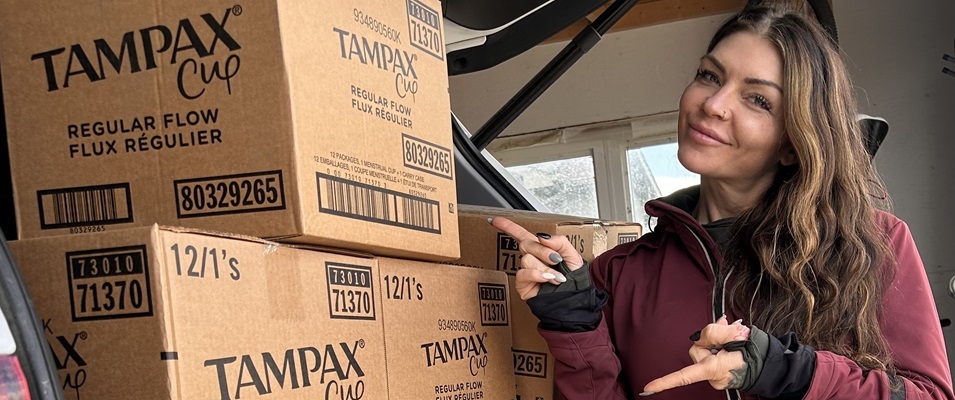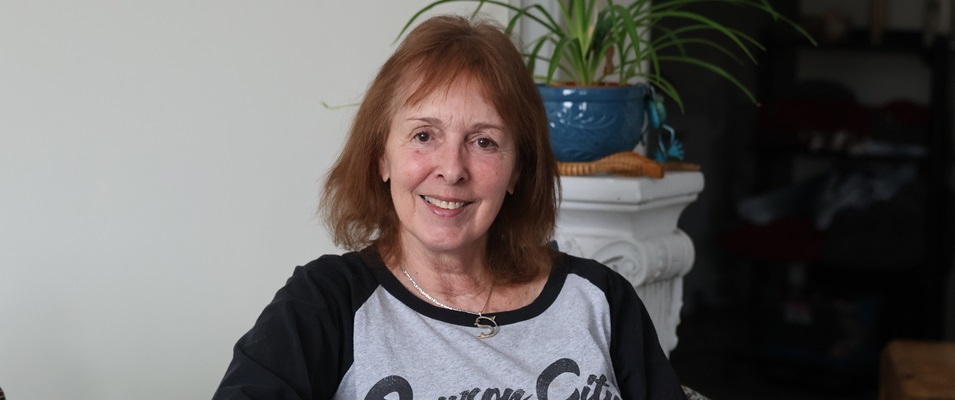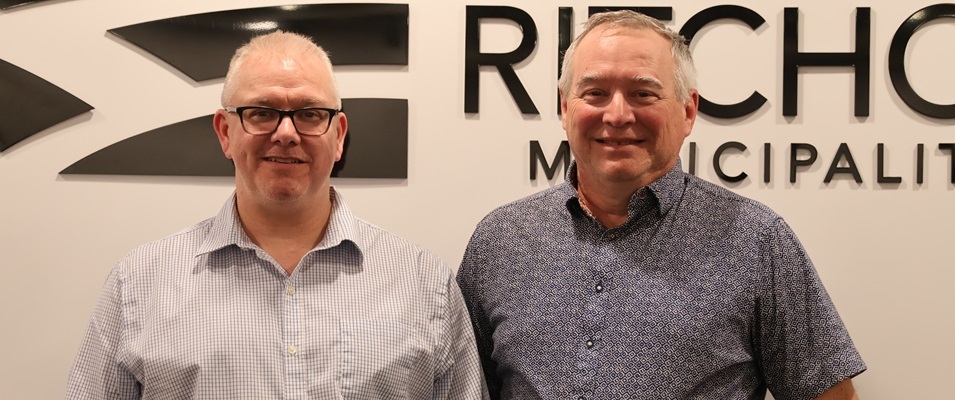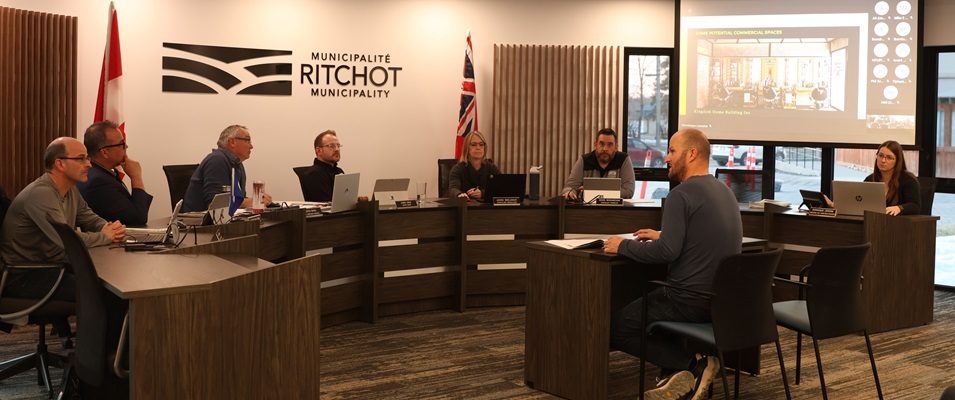
Janessa Roy of Île-des-Chênes is a teacher and mom to three young daughters. In recent years, she’s also become the lead for the Manitoba chapter of Moon Time Connections (MTC).
MTC is a national nonprofit supporting Indigenous women and girls by providing menstrual equity for northern communities. The goal is to ensure that women everywhere have access to menstrual products and education.
MTC was founded in 2017 by Nicole White, a Métis woman from Saskatchewan.
“The reason why she got behind this project is because she found out that menstruators could not go to school when they were on their period because they didn’t have access to products,” Roy says. “When there is access to product, it’s insanely expensive. So they basically missed a week [of school] out of every single month.”
White’s involvement began with a single donation of menstrual pads to a community in northern Saskatchewan. Since that time, three others have taken up the banner alongside White, hailing from Ontario, British Columbia, and Manitoba. Together they make up MTC and are supported by another nonprofit, True North Aid.
Roy joined the team in 2021 after listening to a podcast on CBC. As an educator, she was moved to compassion at the thought of girls missing out on an education over something as normal and manageable as the menstrual cycle—or, as it’s known in Indigenous lore, the moon time.
Thanks to the dedication of the MTC team, a full spectrum of period products and education resources reach 161 northern communities from coast to coast. More than six million products have been shipped to schools, healthcare centres, midwifery clinics, food banks, and community centers to date.
These products are a reflection of what women in more urban settings have daily access to, including reusable period cups, menstruation underwear, and even heating pads. Period product dispensers are established in schools and clinics and refilled on an ongoing basis.
Some might wonder why MTC doesn’t focus on sending only reusable products, since this would seem to solve the supply issue.
In a perfect world, Roy says, that would be the answer. But many of these remote communities don’t have regular access to clean water. Some have no clean water source while others can access clean water only certain hours of certain days. This makes washing and reusing the products difficult.
MTC has expanded their mandate to include education resources.
“We take this stuff for granted because we have it in our education, but in a lot of communities there’s just no education on what a period is, why it is happening, and how we care for ourselves.”
For this reason, MTC offers virtual workshops to train facilitators in these communities who can then educate girls. To date, more than 100 facilitators are providing local education.
Since Indigenous women are at the heart of MTC’s focus, teaching videos are being developed which include the voices of Indigenous elders who reintroduce the traditional spiritual and cultural views of a woman’s moon cycle.
Prior to colonization, Roy says, Indigenous cultures revered this feminine trait.
“You were cared for and honored and celebrated,” says Roy. “It was a beautiful rite of passage and a sacred [experience] to be honoured with [your menstrual cycle]. Unfortunately, in recent years it has become kind of a taboo topic.”
Already Roy and the MTC team are seeing a shift in attitude through the workshops they offer. They also see language as being culturally important.
“We’re currently working on translating our resources into as many languages as we can,” Roy says. “I wouldn’t say that language is a deterrent, but we’re just all about language revitalization.”
Roy says that part of her passion is derived from knowing there are Indigenous peoples in her own ancestry.
“They are in my family line, I’m proud of that, and I try to honor those ancestors,” Roy says. “On the flip side, I also come from a long line of settlers and this is my way of putting myself out there and doing something. I love the idea of reconcile-action.”
This year, Roy took a temporary leave of absence from her full-time teaching position in Blumenort to focus her energies on MTC for a while. Still, she admits there are times when life gets hectic and she could use some volunteer help.
Funding for MTC’s projects are provided through Food Banks Canada and the Women and Gender Equality Ministry.




















